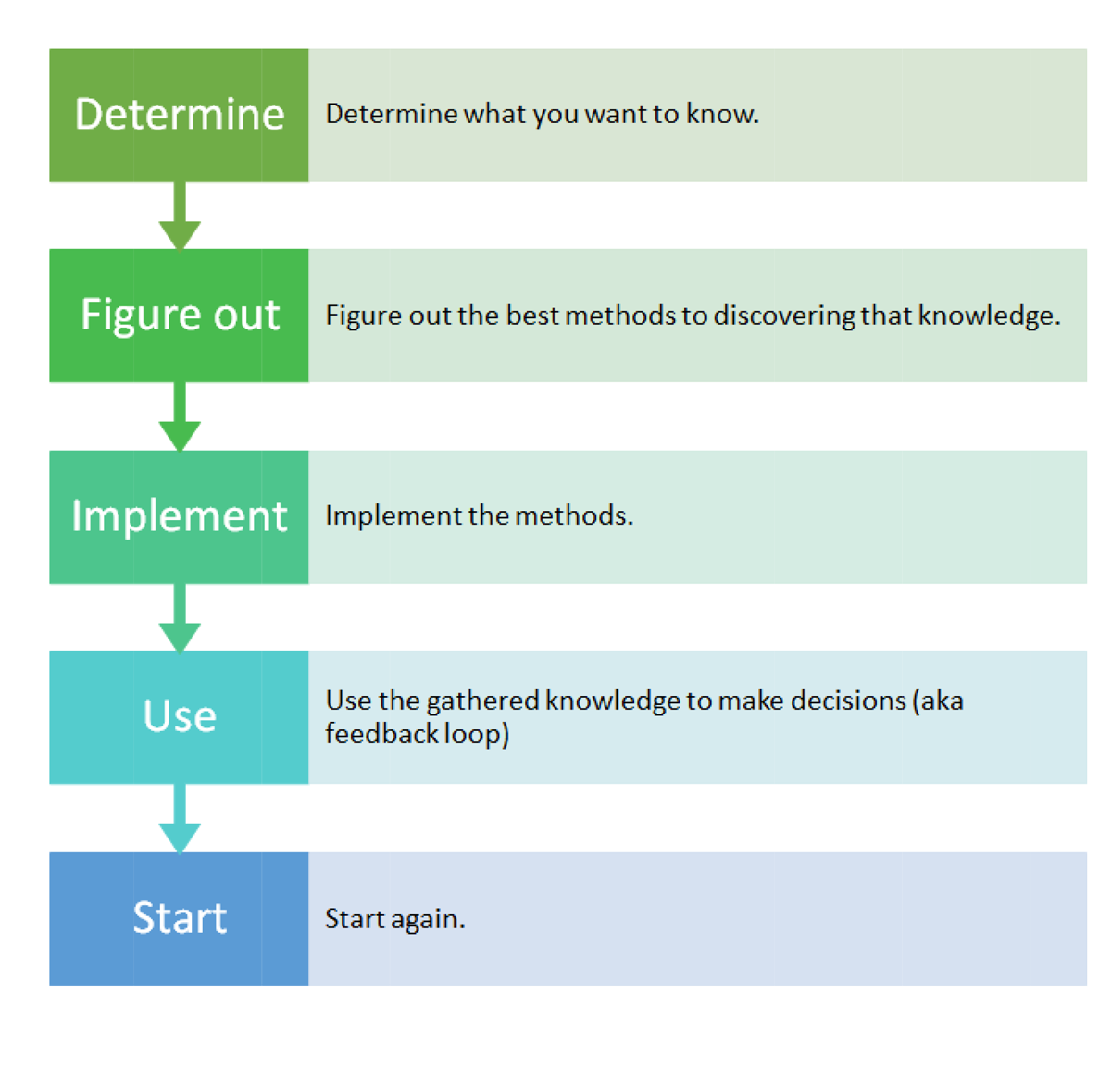Assessment and Evaluation in Special Libraries
Lauren Hays
Special librarians need to regularly assess our resources, space, and services. Assessment precedes evaluation.
We will want to assess our collections and determine what is being used. We will also want to assess space usage and discover how individuals are using the spaces within the library. We may also want to assess the use of services such as interlibrary loan, reference support, and research consultations.
According to Wikipedia, “Library assessment is a process undertaken by libraries to learn about the needs of users (and non-users) and to evaluate how well they support these needs, in order to improve library facilities, services and resources. In many libraries successful library assessment is dependent on the existence of a ‘culture of assessment’ in the library whose goal is to involve the entire library staff in the assessment process and to improve customer service.”
When thinking about assessment it is also necessary to consider evaluation. While assessment and evaluation are closely related they are not the same thing. According to the Merriam-Webster Dictionary, evaluation is
1: to determine or fix the value of
2: to determine the significance, worth, or condition of usually by careful appraisal and study
Evaluation is judgmental and product-oriented. It is the final review of the program you are assessing. Evaluation comes after assessment. In other words, the process of assessment leads to evaluation. We must first assess in order to evaluate the service or resource. The site onlineassessmenttool.com, has a great explanation of the differences between assessment and evaluation.
| Assessment | Evaluation |
|---|---|
| Is ongoing | Provides closure |
| Improves quality | Judges quality |
| Individualized | Applied against standards |
| Not graded | Graded |
| Process-oriented | Product-oriented |
After we conduct assessments, we can evaluate what we need to do with the knowledge we gathered. For example, if we assessed our library collections to determine what was being used, we could then evaluate the collection to decide what we want to keep and what we may want to weed. Whatever we assess we must evaluate to determine its value, which in turn helps us decide if we should keep it, or keep doing it. From the assessment and evaluation process we may also discover that we need to reallocate resources away from one project and add resources in another area.
So now that we have looked at what assessment and evaluation are, why they are important, and the skills special librarians need, let’s look at how to develop an assessment plan.
Determine what you want to know. This also means developing a mission for the assessment plan that is tied to the company/organization mission. Make it clear why you are conducting the assessment so everyone is on the same page. This also means determining the goals for the assessment program. If your library does not have established outcomes, now is the time to develop them. Once you have settled on goals that reflect your current library, it is necessary to map where the goals are met.
Figure out the best methods to discover the information in the places where you identified it will reside.
- Implement the methods.
- Use the gathered knowledge to make decisions.
- Start again. Assessment is never done.
In my next post, I will discuss how to determine your assessment questions and what methods are best to answer those questions.

Lauren Hays
Lauren Hays, PhD, is an Assistant Professor of Instructional Technology at the University of Central Missouri. Please learn more about Lauren and read her other posts about skills for special librarians; then take a look at Lucidea’s powerful ILS, SydneyEnterprise, used daily by innovative special librarians.
Similar Posts
Teaching about AI in the Workplace
Suggestions for special librarians from Claude on how to foster cross-generational AI learning communities in the workplace.
Keeping up with AI…
Resources for staying current on the quickly changing AI landscape from a library expert.
Interview with Lesley Farmer about SLA’s Information Outlook
Interview about the rebirth of SLA’s Information Outlook as a quarterly online publication with interview with Professor Lesley Farmer
Ways I Have Been Using Generative AI
Generative AI can be used in many ways as part of a typical workflow; examples and thoughts about what the future holds




Leave a Comment
Comments are reviewed and must adhere to our comments policy.
0 Comments